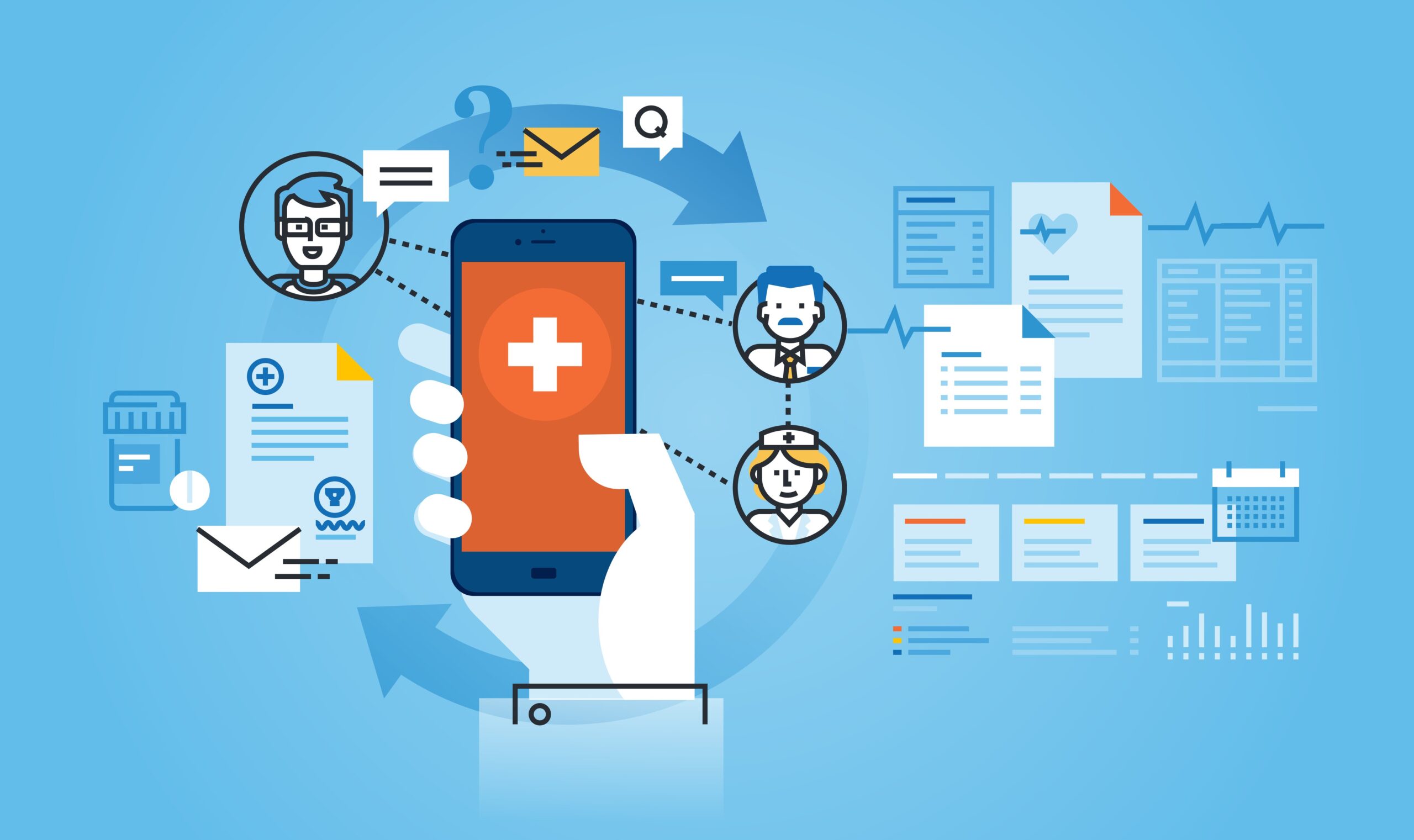// WIDSIX HEALTH BLOG //
How is digital marketing used in healthcare?
In recent years, the healthcare industry has seen a significant shift towards digital marketing. With the rise of the internet and the increasing number of people using smartphones and other mobile devices, digital marketing has become an essential tool for healthcare providers to connect with patients and promote their services. In this blog post, we will explore how digital marketing is used in healthcare.
What is digital marketing in healthcare?
Digital marketing in healthcare refers to the use of digital channels to promote healthcare products and services. This includes email marketing, social media advertising, search engine optimization, content marketing, and mobile marketing. Digital marketing has become an essential tool for healthcare providers to reach a wider audience, increase brand awareness, and improve patient engagement.
Email marketing
Email marketing is one of the most popular forms of digital marketing in healthcare. It is an effective way for healthcare providers to communicate with patients and provide them with relevant information about their health. Healthcare providers can use email marketing to send newsletters, appointment reminders, and other important information to their patients. Email marketing is also an excellent way for healthcare providers to promote their services and offer discounts and other incentives to patients.
Social media advertising
Social media advertising is another popular form of digital marketing in healthcare. Healthcare providers can use social media platforms like Facebook, Instagram, and Twitter to promote their services and reach a wider audience. Social media advertising allows healthcare providers to target specific demographics and geographic locations, making it easier to reach potential patients. Social media advertising is also an excellent way for healthcare providers to engage with patients and answer their questions.
Search engine optimization
Search engine optimization (SEO) is the process of optimizing a website to improve its ranking in search engine results pages (SERPs). Healthcare providers can use SEO to improve their website’s visibility and attract more patients. SEO involves optimizing website content, keywords, and meta descriptions to improve its relevance to search engine algorithms. By improving their website’s SEO, healthcare providers can improve their online presence and attract more patients.
Content marketing
Content marketing is the process of creating valuable and informative content to attract and engage a target audience. Healthcare providers can use content marketing to provide patients with relevant information about their health and promote their services. Content marketing can include blog posts, infographics, videos, and other types of content. By creating valuable content, healthcare providers can improve their online presence and attract more patients.
Mobile marketing
Mobile marketing refers to the use of mobile devices to promote healthcare products and services. Healthcare providers can use mobile marketing to send text messages, push notifications, and mobile ads to patients. Mobile marketing is an effective way to reach patients who are on-the-go and may not have access to a computer. Mobile marketing is also an excellent way for healthcare providers to promote their services and offer discounts and other incentives to patients.
Benefits of digital marketing in healthcare
Digital marketing offers several benefits to healthcare providers, including:
- Increased patient engagement: Digital marketing allows healthcare providers to connect with patients on a more personal level and provide them with relevant information about their health.
- Improved patient experience: Digital marketing can improve the patient experience by providing patients with convenient and easy-to-use tools for booking appointments, accessing medical records, and communicating with healthcare providers.
- Cost-effective: Digital marketing is often more cost-effective than traditional marketing methods, such as print ads and billboards.
- Improved brand awareness: Digital marketing can help healthcare providers improve their online presence and attract more patients.
- Data-driven: Digital marketing allows healthcare providers to collect and analyze data about their patients, which can be used to improve their services and target specific demographics.
Conclusion
Digital marketing has become an essential tool for healthcare providers to reach a wider audience, improve patient engagement, and promote their services. Email marketing, social media advertising, search engine optimization, content marketing, and mobile marketing are all effective digital marketing strategies





